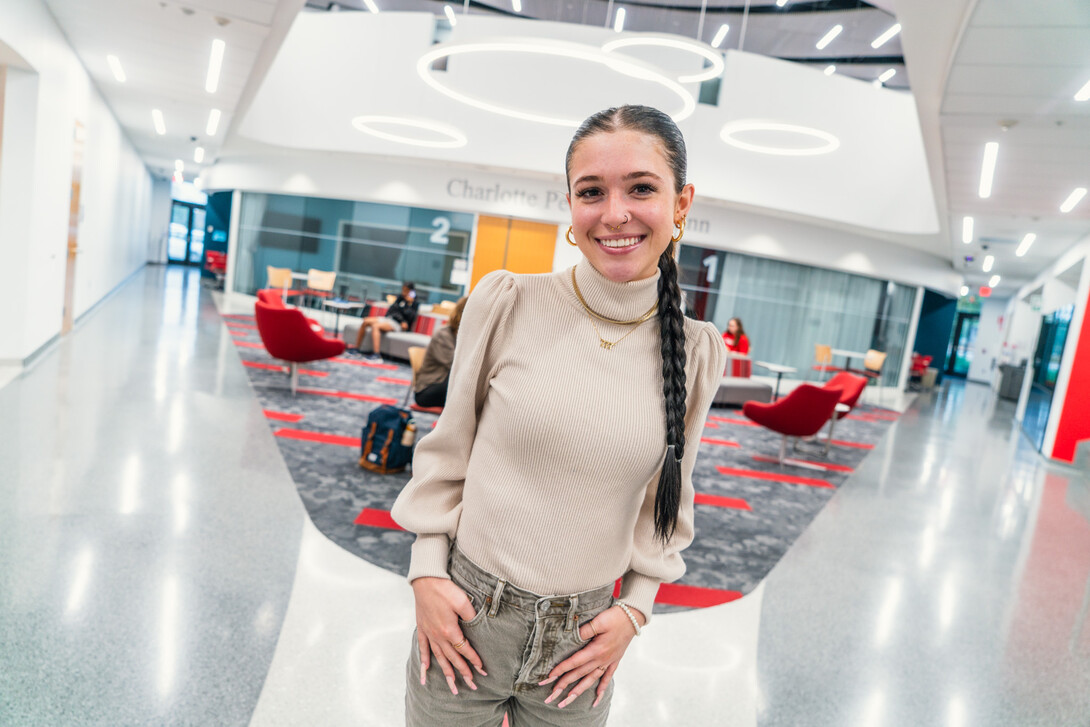
As a leader in the Collegiate Recovery Community, Ella Eckerman is fostering a community centered on sobriety, recovery and mutual support that helps students like her succeed at the University of Nebraska–Lincoln.
Like many, Eckerman described herself as hesitant when she arrived at her first Collegiate Recovery Community meeting.
“I remember being so nervous, but then we went out to dinner — everyone was so inclusive right from the beginning and wanted to get to know me,” Eckerman said. “Seeing people my age struggling with similar things as me and choosing sobriety felt like a huge relief."
Almost two years later, Eckerman is co-leading the Collegiate Recovery Community as well as running the group’s social media account and continuing to build a supportive, welcoming and consistent community for students in recovery.
As a leader in the group, Eckerman is working to offer other Huskers in recovery the same alternatives she needed when she got sober.
“CRC has definitely connected me to UNL in a new way,” Eckerman said. “It's shown me a different side of college outside of drinking culture. Having this group and this support system and finding friends within it has totally changed things.”
With weekly meetings, free Friday night dinners, social events and access to additional resources through the Health Center and beyond, the community works to offer a wide range of programming and support that centers around sobriety and recovery.
“It was really amazing for me to see other people be so vulnerable; it made me feel like I could do the same,” Eckerman said. “It's become a safe space where I can update people weekly on where I'm at in my sobriety and where I'm at in my recovery in general.”
Eckerman’s greatest hope is that students know the recovery community is always there and always wants to hear from you — even if it’s not for you the first time you go.
“Reach out, even if you don't know if you're going to show up. Show up, even if you're going to leave in the first five minutes. We all struggled with addiction, and we know the feeling of being unsure,” Eckerman said.
“We're not going to be mad if you leave. We're not going to be mad if you come back four months later. We know that recovery is not linear, so if you’re curious about coming, I just say go for it.”







